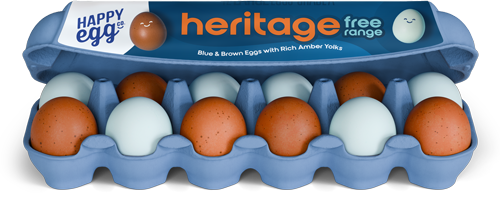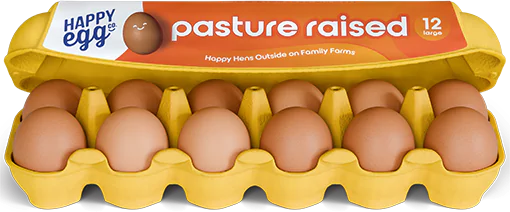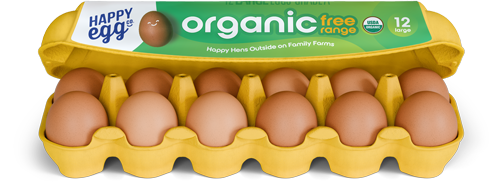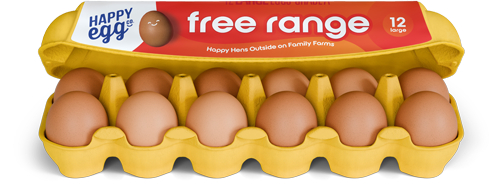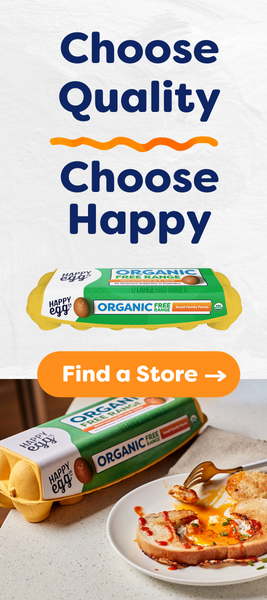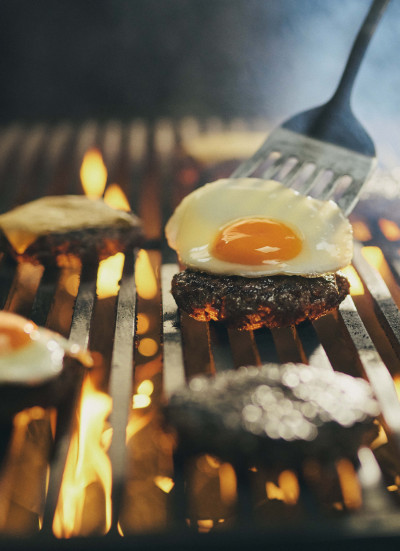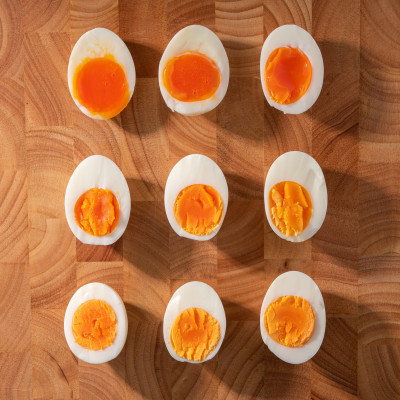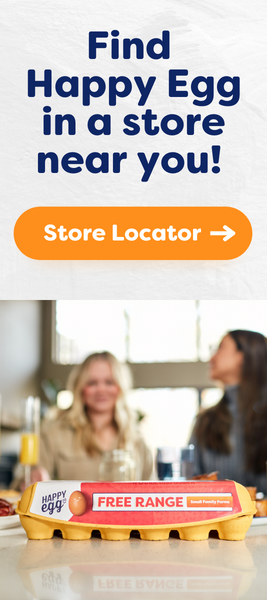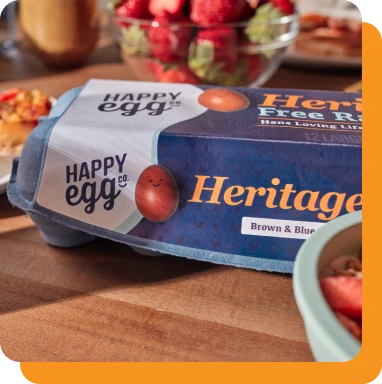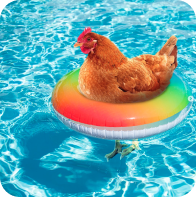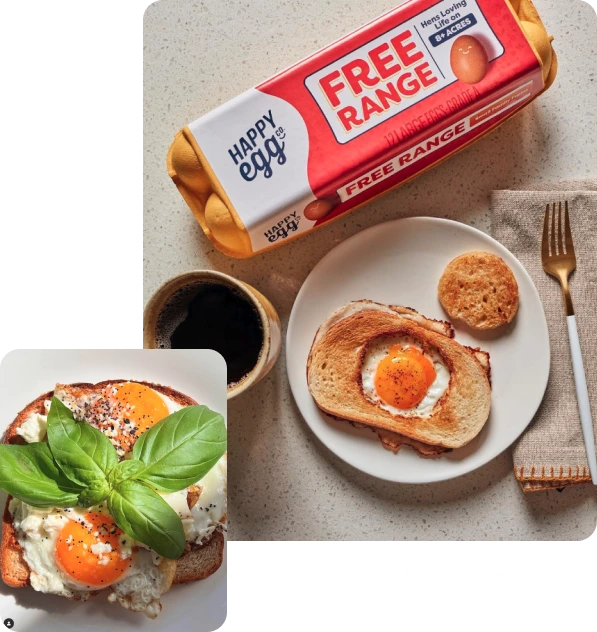Happy Egg is headquartered in Rogers, Ark., with 90+ small family farms operating throughout the Ozarks—otherwise known as the Heartland of Happy. With a name like Happy Egg, it’s easy to believe that we are all about Happiness. But, what does this really mean? And how does it impact the quality of our eggs found in stores across the nation?
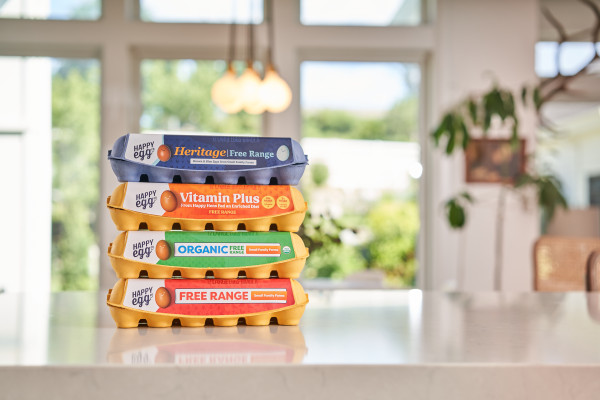
This file is licensed under the Creative Commons Attribution-Share Alike 4.0 International license
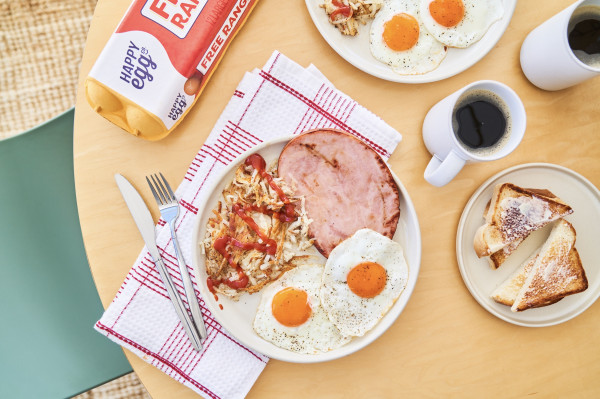
This file is licensed under the Creative Commons Attribution-Share Alike 4.0 International license
Operating With Intentionality
From headquarters to their farms, Happy Egg makes many intentional choices in order to produce their eggs—because oftentimes, it’s the smallest choices that add up to make a difference.
“Unlike most egg operations that have hens in cages with multiple houses side by side, we focus on small family farms that can provide husbandry care for our hens; truly your backyard hens at scale,” said Whitney Fortin, VP of Marketing at Happy Egg. “We spent years learning and understanding how our Free Range farms should operate and what standards to adhere to in order to produce the best possible egg, while allowing our hens to live happily.”
“We intentionally partner with small family farmers to produce our eggs. This not only ensures that our hens receive top-tier care in order to lay quality eggs with golden yolks, but allows our farmers to provide for their families and enjoy their way of life.”
Happy Products
We currently have four products available in our lineup: Free Range, Organic, Vitamin Plus, and Heritage. While all Happy Egg products are laid by hens on Free Range farms, our various product offerings meet consumers where they’re at in their journey with food, and provides them with an easy choice.
Vitamin Plus was the most recent product added to Happy Egg’s portfolio. “Vitamin Plus Free Range eggs contain more Vitamin D*, B7* and B9* compared to standard eggs**. Just like the rest of our product portfolio, Vitamin Plus eggs are laid by hens on our small family farms where they snack on bugs and grass. This coupled with their nutritious feed leads to an egg with more vitamins** to boost your breakfast, without sacrificing quality or taste,” said Fortin.
“The launch of Vitamin Plus allowed us to not only provide another Happy product for consumers to choose from on their shopping trip, but provides them more nutrients* to start their day right. “
Confusion Free
Consumers often find shopping the egg aisle to be a little confusing; but we are hoping to change that. “There are many misconceptions and misunderstandings when it comes to egg labels and farming standards,” said Fortin.
“Our farming standard was created from years of research on what allows hens to exhibit their natural behaviors, while balancing being good stewards of how much land is needed. Unlike some companies in our category that will put down new flocks for the sake of launching another “farm label” product, we don’t compromise or change our standards to sell more products, nor do we seek to confuse shoppers further. We stand by our choices so you can Choose Happy.”
Choosing To Be Different
It’s hard to miss Happy Egg’s signature yellow and blue biodegradable egg cartons when you’re standing at the egg case. Our Heritage eggs specifically feature deep brown and pastel blue shells, as well as amber yolks that are rich in flavor.
“The uniqueness of our Heritage eggs has led them to be used by at-home foodies, chefs and celebrities, as well as featured on several cooking and baking television shows,” said Fortin. “The breeds of birds who lay our Heritage eggs require more detailed care, but we’ve chosen to pursue that for the sake of providing consumers with a superior egg in both quality and taste.”
Happy Egg’s Heritage eggs are beloved by both everyday consumers, as well as chefs and celebrities. “Chefs across the nation call us daily trying to get our Heritage eggs in their shops,” said Fortin. “We even have a waitlist—but we believe transforming the egg category starts with introducing America to what a quality egg should look and taste like.”


